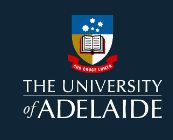Economists study the world through the analysis of decision-making in households, businesses and broader society. They examine details and put pieces together, always striving to understand the ‘big picture’.

Economists study the world through the analysis of decision-making in households, businesses and broader society. They examine details and put pieces together, always striving to understand the ‘big picture’.
Armed with these insights, economists can give expert advice on business strategy, understand the background behind the news, influence public policy for a better world, and make informed personal financial decisions.
What Will You Do?
Where Could It Take You?
Economics graduates go on to all sorts of exciting careers. You might be a high-stakes stockbroker, banker, or financial planner, a data analyst in a government agency or health economist with a pharmaceutical group. You could be a demand planner in a big wine company. Perhaps you’ll end up working in journalism, foreign affairs or mobile game development.
Degree Structure:
The Bachelor of Economics program includes compulsory courses designed to give students a solid understanding of economics, plus a selection of optional courses.
The compulsory courses make up half of the program and include economic principles, applied economics and econometrics.
The other half of the program consists of optional or elective courses. Students can choose from further economics courses (for example big data, international economics, international trade, environmental economics, human resources economics, development economics, behavioural economics) or courses from other disciplines including accounting, finance, international studies, management, politics, marketing, geography, history, languages, mathematics, or computer science. In this way, the Bachelor of Economics will give students the opportunity to pursue one or more areas of interest outside of economics.
The optional Honours (fourth) year involves the writing of a research report or thesis together with advanced coursework in macroeconomics, microeconomics and econometrics.
Units:
There’s a lot happening here at the University of Adelaide. Education. Research. Innovation. But it all stems from one motivation—progress. For our students. Our community. Our world. And we can’t wait to see what’s around the next corner.
In a fast-changing world where new industries emerge and the future of work is constantly evolving, it is knowledge that will keep you moving forward in your career.
Our online, face-to-face and blended range of professional and continuing education courses will ensure you learn, grow, adapt and thrive with Professional and Continuing Education (PACE).
© 2025 coursetakers.com All Rights Reserved. Terms and Conditions of use | Privacy Policy